"The lack of immediate specialisation gave me an opportunity to study areas of science which I might have been unable to learn about otherwise."
Adam is from Houghton-Le-Spring, near Sunderland in the North-East of England, and wrote this at the end of his second year studying Natural Sciences (Biological) at Christ’s College, Cambridge. At school he did A-Levels in Biology, Chemistry and Maths, as well as AS-Levels in Physics and Further Maths.
How did you choose your course?
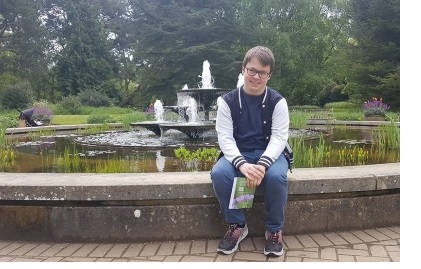
Natural Sciences was the ideal course for me. I liked the lack of immediate specialisation, as this gave me an opportunity to study areas of science which I might have been unable to learn about otherwise. This also helped me to work out which topics I particularly enjoy studying. For example, in my first year I studied a range of Biology and Chemistry modules, initially believing that I wanted to carry on with Chemistry throughout my degree. However, upon taking the IA Evolution and Behaviour course, I discovered a great appreciation and passion for Natural History, which has subsequently shaped the path of my degree. Other universities do not provide this level of flexibility and choice, which can become an issue should you discover that maybe your chosen degree is not for you!
Do you feel that Christ's is a supportive College?
Yes. Michaelmas term last year was exceptionally difficult for me, as I lost two close family members. However, I am extremely grateful to both my Director of Studies and my Tutor for their guidance and support. My Tutor in particular was always very welcoming and willing to listen when I needed to talk - she gave amazing advice on how to cope, and provided additional support over email. I could not admire and respect her more. I can't imagine that you'd get this kind of accessible and friendly support at other universities. Although I have not used them myself, Christ’s also provides drop-in sessions for students who feel like they are struggling, which I have heard are useful, even if you just want to get something off your chest.
I receive a small bursary each term from the College, which goes a very long way in managing funds throughout the year. The extra financial security provided by this is extremely comforting. I also applied for funding for field work, to be used in the third year of my degree, which Christ’s was more than happy to contribute to.
What do you think of the collegiate system in general?
The collegiate system was what first attracted me to Cambridge! For less outgoing people in particular, this system is helpful in promoting friendly interactions between students in a relaxed environment. Due to the enormous variety of University societies and social events, meeting others from different Colleges is rarely a problem as long as you make the effort to meet people outside of your own College. Moreover, because many of the Colleges are clustered reasonably close together within the city centre, aside from a few such as Girton, it’s easy to visit other Colleges and meet new people. Many of the central Colleges have grounds that are open to all members of the University, and it can be lovely to visit other Colleges should you tire of the same scenery every day.
This year, I spent much more time in other Colleges compared to last year, in order to visit friends, for weekly supervisions, or simply for a stroll through the grounds. In my experience, University societies tend to have frequent gatherings in different Colleges, so a lot of time is spent in other Colleges, whether this be for weekly events or for general committee meetings.
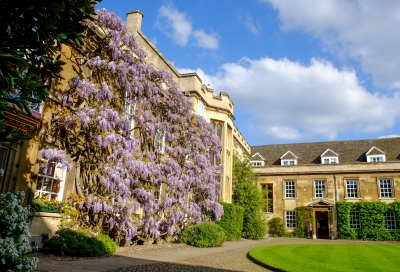
Why did you apply to Christ’s?
Applying to Christ’s was a decision that I made based on its reputation for Natural Sciences, and as it is considered to be a more academic College. Having made this decision before the UCAS application deadline for Oxbridge (usually mid-October of Year 13), I travelled down for an open day, where I was very impressed with the beauty of the older architecture around the College, alongside more modern student accommodation. Furthermore, due to central position of Christ’s within Cambridge, almost everything you need is on our doorstep, from food shops to green spaces to clubs.
(Image credit: Sir Cam)
How did you find the application process?
I found the application process to be stressful at times, but overall very thorough. I sat an admissions test early in Year 13. At the time, it was the NSAA, and I was given a general Maths paper and a general Biology/Chemistry paper to complete within a set time. These papers were extremely difficult, focusing more on the ability of the candidate to work through unfamiliar questions and situations, than their ability to retain large amounts of knowledge. I remember seeing a question similar to one in the admissions papers in a part IB Plant and Microbial Sciences exam, in my second year! I didn’t do much significant preparation for this assessment. I simply reviewed some of the topic areas that I had covered in previous years and made sure I was comfortable explaining in detail the biological concepts I had covered.
Was your interview what you expected it to be?
It is fair to say that my interview was not what I expected it to be! I had assumed that I would be asked about elements of my personal statement, but this didn’t come up in my interviews. Instead, I was given various small problems to work through, with guidance from my interviewers. This is similar to how supervisions work. I found that the interviews for Natural Sciences tend to focus on whether or not you would be suited to the style of teaching at Cambridge, rather than how much you know already. In order to prepare for an unpredictable set of interviews, I asked my sixth form teachers for a few practice interview sessions, where a teacher would ask some science-based questions that were unfamiliar to me. I would listen, try to make insightful comments, and ask questions which led to further discussion.
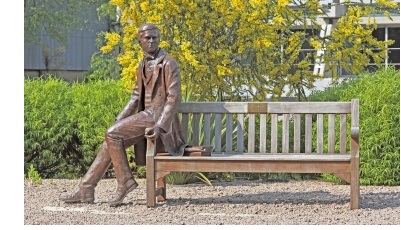
What advice do you have for people considering applying to Cambridge for Natural Sciences?
My advice to prospective applicants would be to try and remain calm at all times during the admissions process. Although the process may feel scary (In all honesty, I was expecting to be rejected!), and you may be met with unfamiliar questions and situations, you are by no means expected to be able to give university-standard answers when you have not yet finished A-Levels. Prepare when you can by reading unfamiliar papers and topic areas to broaden your knowledge, but do not let this affect your normal studies. If you have a passion for science, then your interviewers (many being leading authorities in their fields) will recognise this.
What was your first week at Christ’s like?
Settling in at Cambridge was the most difficult part of the process for me. However this is not to say that it was impossible! I found that meeting new people on my corridor really helped me to not feel isolated initially, and these first few introductions were a great way to gain the confidence to meet others around Christ’s. There are many different open tutorial hours across the week, and there is always a Tutor on-call, so I always had the opportunity to speak someone when I was unsure or anxious about something.
Sadly, I wasted my Freshers' Week somewhat, as homesickness began to kick in hard. I had never been away from home and independent for so long, so this was understandably a big step. Looking back, I regret more than anything missing most of the week. Everyone else that I am now good friends with had fun, meeting lots of new friends. If I could, I would join in with as many activities and talk to as many people as I could!
Was there anything that you were nervous about, in relation to the course?
I had been worried about the new style of teaching, via lectures, that I would have to adapt to at university. I had previously been used to smaller classes, and direct contact with the teacher. My first few lectures were certainly a bit strange! However, I quickly became accustomed to the new format, and making lecture notes became second nature. Having supervisions in each module for Natural Sciences is a great help in easing the transition in teaching style from A-Levels to university.
"Having supervisions in each module is a great help in easing the transition from A-Levels to university."
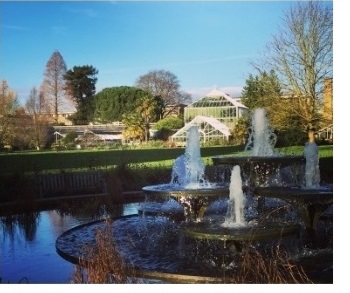
How is your course taught?
During my second year, I took three different modules (compared to four in first year) each of which was accompanied by three hours of lectures per week. Depending on the module, you have roughly three to five hours of practical classes per week, in order to help consolidate lecture material. I also had one hour-long supervision per module per week, in which small groups (usually two to four people) are able to ask questions about the lecture content to a supervisor. Typically, supervisors set work to be handed in the following week, much like homework in school, which I have found helps to ease the transition to University.
One particular lecture that stood out to me this year came from the part IB Animal Biology course, early on in first term. In the very first lecture of the year, Professor Nick Davies showed an intense passion for natural history, and engaged the entire lecture theatre with his anecdotes and superb teaching. It is amazing to watch people like him talk about their passion, and this is partly why I love Zoology today!
How easy is it to balance work and free time at Cambridge?
In terms of managing workload, I find it helpful to file away notes as soon as possible, as this will be very helpful when you come to revise. It’s useful to write up lecture notes neatly as soon as the lecture finishes, so that the content is fresh in your mind, and the notes are legible when you come back to read them. Over the holidays I like to condense my lecture notes into revision booklets, containing what I believe that I can feasibly learn for the exams, adding extra reading references to these as the year progresses. It is often difficult to find the right balance between academic and social activities, but by having a rough mental schedule of work and relaxation, you can make ample time for both.
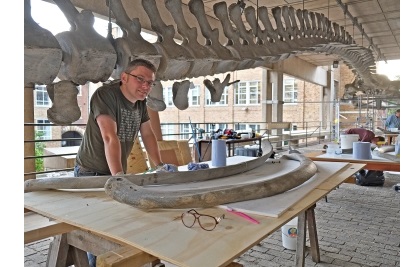
Cambridge
What have you enjoyed about life at Cambridge this year?
This year I have loved each of my modules, having specialised towards natural history from first year. I have also, also I feel, become more social, making this year overall extremely enjoyable. Although the work itself has been fascinating, the workload can sometimes be a bit overwhelming. I tend to put immense pressure on myself during exams, which led to a stressful Easter term - thankfully followed by plenty of time for rest and recuperation!
This year I have become more involved with University societies, and am currently acting as President of the Cambridge University Sign Language Society. This has been an incredible experience – definitely get involved with whatever will help you to make the most of your time at University! The starting point for many societies is the Fresher' Fair in the first few days of first term (Michaelmas), where hundreds of societies advertise themselves.
How do you spend your holidays?
Over the short vacations, I typically spend time with family and rest up from the previous term, but also consolidate my lecture material in order to ease revision stress later on. Long vacations are spent doing extra reading on topics that I am interested in and doing volunteer work, although many people choose to do internships over the summer too.
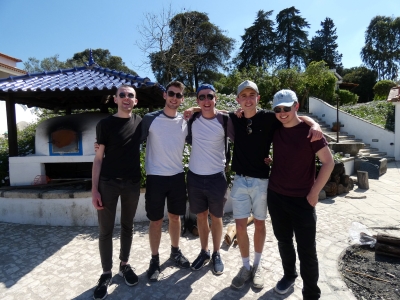
What are you most looking forward to next year?
Next year, I am determined to work hard and to attain a high grade at graduation! I’m really looking forward to my course, Part II Zoology, due to both its lecture content, and the opportunity to visit Borneo for field work near the end of the summer. This is a joint trip run by part II Zoology and Plant Sciences. The first half of the trip involves some island hopping around the Sabah-Malaysia area of Borneo, in order to get a feel for the plant and animal life that resides there, with emphasis on how we can conserve the dwindling biodiversity. The second half of the trip is based in a field centre within the rainforest, and gives us the opportunity to carry out independent research projects that could be published in a scientific paper if appropriate. It is set to be a trip packed with opportunities to practise conservation, biological identification, and experimental design. Trips such as these are often significantly subsidised by the departments involved, in order to encourage participation regardless of financial background.
In sixth form, I had never imagined that I would come to love the natural world as much as I do now, which I feel is mostly thanks to the Natural Sciences course, which has allowed me to sample unfamiliar areas in science. The Zoology department is very impressive, containing various excellent facilities for lab work, and there are opportunities for expeditions outside of Cambridge. I will be doing what I love in a place that I love! Reuniting with my friends in Cambridge and graduating with them in a year’s time will be amazing too. All in all, I have found Cambridge to be extremely rewarding over the last few years, with immense support to be given to those who need it.
July 2019
Please be aware if you're considering an application that our student writers describe their experiences. Although the majority of the information stays the same, some details may change from year to year. Do read the student profiles in combination with our undergraduate admissions pages for full information.
Back to Student profiles page / Natural Sciences at Christ's / Sudina's profile
